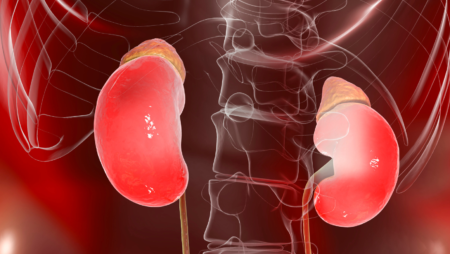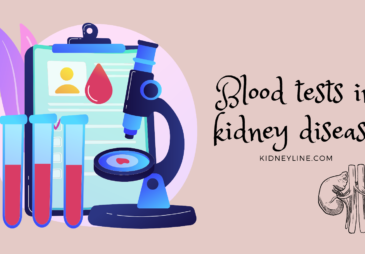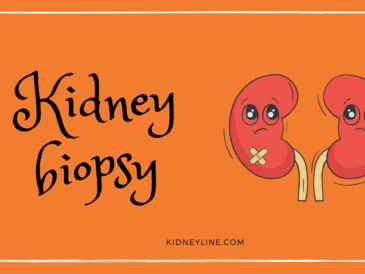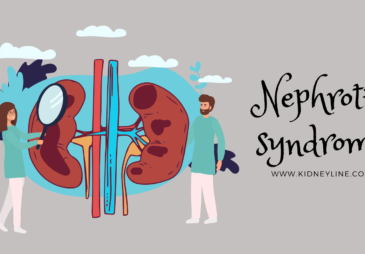In the clinic, people with kidney disease often ask me what caused their kidney disease. This is a pretty straightforward question. But beneath this simple question is a far bigger one. They really want to ask, “Is this my fault?”
And you know what; many times, it isn’t.
To understand more about kidney diseases, keep reading.
Quick facts about the kidneys
The kidneys are a pair of bean-shaped structures on either side of the spine. They lie just beneath the ribs. Although this is the typical finding, it does not hold for everyone.
For example, some people have just one kidney. However, very rarely, you may find someone with three kidneys. This usually happens when one kidney splits into two.
Similarly, the kidneys are not always found beneath the ribs. Sometimes they are found in the pelvis. And on rare occasions, one kidney may cross over to the other side of the body.
What does the kidney do?
The kidney’s primary function is to remove waste from the body through urine. The kidneys constantly filter waste from the blood. Useful substances are reabsorbed into the bloodstream, but wastes get expelled in urine.
Besides urine formation, the kidneys perform other essential functions in the body. The kidneys
- regulate the amount of water in the body by passing concentrated or dilute urine
- regulate the amount of electrolytes, like sodium and potassium, in the body
- produce renin, a hormone that helps regulate blood pressure
- produce erythropoietin, a hormone that helps the bone marrow make red blood cells
- convert vitamin D to its active form. Vitamin D plays a key role in bone health and calcium and phosphate regulation.
What are kidney diseases?
There are different kinds of kidney diseases. These diseases may affect one part of the kidney or multiple parts. Moreover, kidney diseases may be acquired or inherited.
Below are some kidney diseases:
- Chronic kidney disease (CKD): This is a common form of kidney disease. A person is said to have CKD when they have irreversible kidney damage lasting more than 3 months. There are five stages of CKD. People with end-stage kidney disease need help to remove waste from their bodies.
- Acute kidney injury: This refers to a sudden deterioration in kidney function, which happens over days, but may last several weeks. It usually requires prompt treatment. Sick people are particularly vulnerable. Sometimes, acute kidney injury may progress to chronic kidney disease.
- Pyelonephritis: This refers to an infection of the kidney. Different kinds of organisms can cause it. Pyelonephritis is treated with antibiotics.
- Kidney stones: This is when stones form in the kidneys. These have the potential to block the urinary tract and cause severe abdominal pain. They can also predispose the person to urinary tract infections. In addition, when kidney stones block both urinary tracts, they can lead to CKD.
- Polycystic kidney disease: This is one of the inherited kidney disorders. People with polycystic kidney disease have many fluid-filled sacs in their kidneys that may interfere with the function of the kidneys.
- Glomerulonephritis This is inflammation of the glomerulus (the filters of the kidneys). Genetic disorders, drugs, and infections can cause glomerulonephritis.
- Wilms tumor: This form of kidney cancer typically occurs in children.
- Renal cell carcinoma: This form of cancer occurs in adults.
What causes kidney disease?
Systemic diseases and infections can cause kidney diseases. Examples are:
- Diabetes mellitus
- Hypertension
- Heart failure
- HIV
- Hepatitis B
- Hepatitis C
- Systemic lupus erythematosus
- Multiple myeloma
- Sickle cell disease
Drugs
Certain conventional drugs and alternative medications are dangerous to the kidneys. Some cause damage when taken in large quantities, but others can damage the kidneys when taken in small amounts. Some drugs linked to kidney disease are
- Non-steroidal anti-inflammatory drugs
- Antibiotics like gentamycin, tobramycin
- Antivirals like amphotericin B,
- Chemotherapy like cisplatin
- Contrast dyes used for imaging
- Heavy metals like mercury, lead and arsenic
- Recreational drugs like cocaine, heroin and methamphetamine
- Herbal medications
Kidney diseases may also be inherited. Hereditary kidney diseases include
- Polycystic kidney disease
- Alport syndrome
- Gittelman syndrome
- Liddle syndrome
- Nephronophthisis
Am I at risk for kidney disease?
Some people have a higher risk of kidney disease than others. Some of those risk factors are
- Family history of kidney disease
- Hypertension
- Diabetes
- Inheritance of certain genes
- Obesity
- Abnormal structure of the kidneys
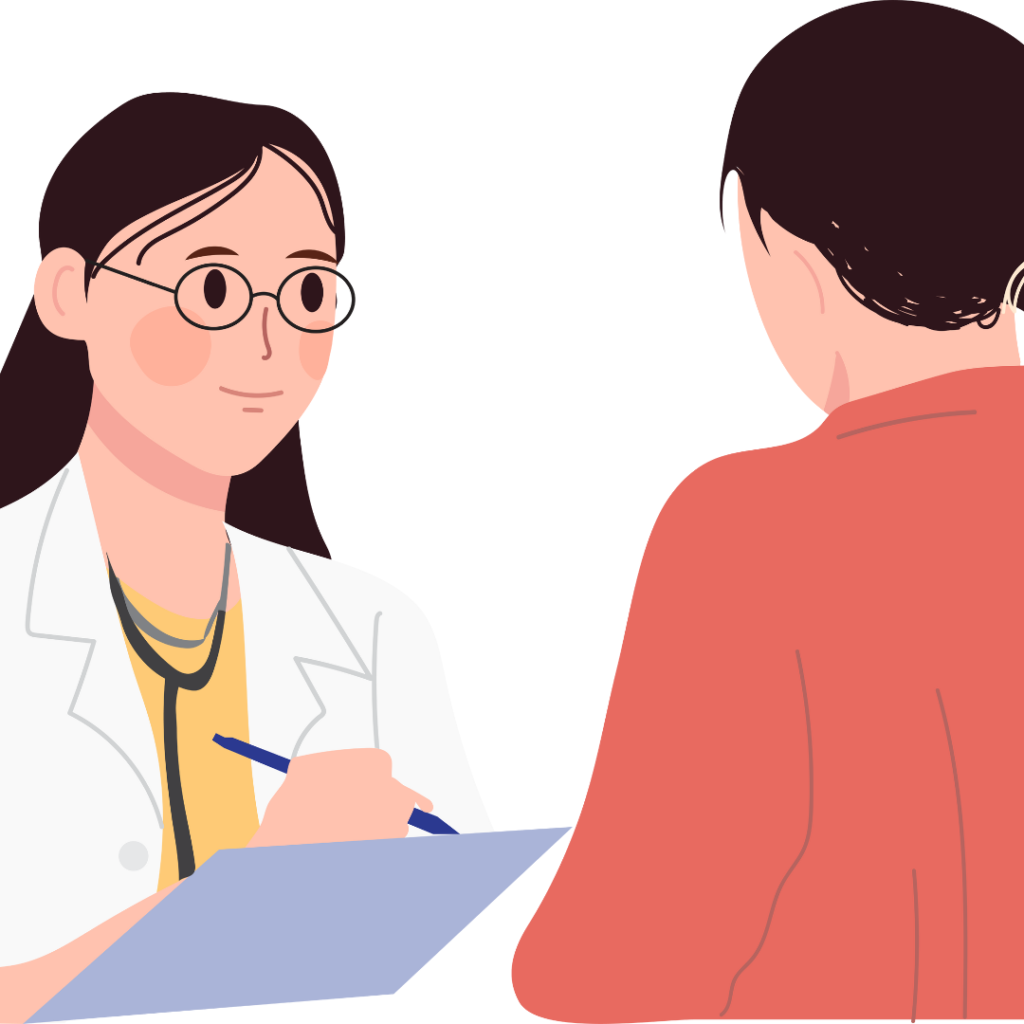
What are the symptoms and signs of kidney disease?
Kidney disease manifests in different ways. Some findings in kidney disease include
- Too little urine
- Excess urination
- Puffy face
- Swollen legs
- Nausea
- Vomiting
- Seizures
- Itching
- Tummy pain
- Difficulty with breathing
- Tiredness
- Problems with sleeping at night
- Excessive sleepiness in the daytime
- Drowsiness
- Poor appetite
Can kidney disease be cured?
Yes, certain kidney diseases can be cured. Kidney diseases like urinary tract infections can be treated and cured. But others, like CKD, cannot be cured. The aim of treatment in CKD is to slow the progression of the disease, prevent complications and address any complications that have already occurred.
Treating people with kidney diseases as early as possible is important to prevent progressive and irreversible kidney damage.
Can kidney disease cause hypertension?
Kidney disease can cause hypertension, but it depends on your type of kidney disease. Because the kidneys regulate blood pressure, disorders like CKD and glomerulonephritis can lead to hypertension.
When the kidneys are not functioning normally, they can’t effectively remove waste and excess fluid from the body. The gradual accumulation of water can lead to a rise in blood pressure. Additionally, diseased kidneys cause a surge in renin production, a hormone that causes fluid retention and hypertension.
How can kidney disease be diagnosed?
Doctors use urine tests, blood tests and imaging to diagnose kidney disease. The particular test your doctor will order depends on the suspected disorder.
Urine tests are done to look for protein, blood, glucose, pH, crystals, bacteria and cells. If you have protein in your urine, your doctor may ask to quantify the amount of protein in your urine by requesting a 24-hour urine protein or a timed urine sample.
Doctors may also request blood work to evaluate your blood’s urea and creatinine levels. Urea and creatinine are markers used to assess toxin buildup. Tests may also include workups to check the level of sodium, potassium and other electrolytes in the body.
Imaging tests include ultrasound. CT scans and MRI. An ultrasound uses sound waves to create images of the organs in the body, including the kidneys. The CT scan uses X-rays, while the MRI uses magnetic waves. These imaging modalities can be used for different diagnostic purposes.
A kidney biopsy is another diagnostic tool. It requires taking a bit of kidney tissue for testing to detect the cause of kidney disease. It is not requested in all kidney diseases, considering it is an invasive procedure. However, people with unexplained protein or blood in urine may require a kidney biopsy.
How is kidney disease treated?
Treatment depends on the type of kidney disease. Your doctor will typically recommend
- Dietary changes
- Lifestyle changes
- Medications
Each treatment modality will be tailored to your unique history and laboratory values. In general, it is best to
- Cut smoking
- Use alcohol moderately
- Incorporate exercise into your routine
- Take care when using over-the-counter medications and herbal medications
- Reduce salt intake
- Keep your blood pressure under control if you have hypertension
- Keep your blood sugar under control if you have diabetes.
People with progressive kidney disease who have kidney failure may be offered dialysis or a kidney transplant.
Bottom line
The kidneys are essential in removing waste from the body and regulating key body functions. Diseases of the kidneys can interfere with these functions. This is because there are many causes of kidney disease, including genetics. Even though you cannot always prevent kidney disease, early treatment is important to prevent irreversible kidney damage.
